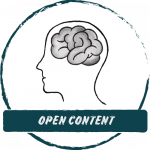Open Course Design & Assessment
Overview
Overview
In this module, we focus our attention on the open, intentional design of learning experiences, collaborative engagement and assessment. Recall that Nascobemo & Burgos (2016) defined the four main characteristics of an open educator as one who:
- implements open-learning design by openly sharing ideas and plans about their teaching activities with experts and with past and potential students, incorporating inputs and transparently leaving a trace of the development process;
- uses open-educational content by releasing their teaching resources through open licenses, by facilitating the sharing of their resources through OER repositories and other means and by adapting, assembling and using OER produced by others in their teaching;
- adopts open pedagogies fostering co-creation of knowledge by students through online and offline collaboration and allowing learners to contribute to public-knowledge resources such as Wikipedia;
- implements open-assessment practices such as peer and collaborative evaluation, open badges and e-portfolios — engaging students, as well as external stakeholders, in learning assessment.
This module explores how an open educator can grow and expand their wings in the open. As mentioned in the “Teaching in the Open” module, several frameworks for open education have been developed over the years. In this module, we explore the “Framework for Designing OEP-based Courses” (Zhang, et. al, 2020). More specifically, we examine how to apply the lenses of this framework to connectivist and student-centred teaching and learning, develop open collaborative engagement opportunities and create open renewable assessment opportunities intentionally within course design.
Outcome
Apply OEP concepts to course and assessment design by identifying various learning theories and strategies appropriate to teaching and learning goals.
Learning Objectives
- Examine the principles of open course design and how they align with the design thinking process (“Ontario Extend Technologist Module“).
- Explore the different dimensions of the “Framework for Designing OEP-based Courses” and intentionally apply them to your own course design and assessment practices.
- Explain the open teaching, open collaboration and open assessment lenses of the “Framework for Designing OEP-based Courses” (Zhang, et. al, 2020).
- Engage in the open design process through Extend Connections and Extend Activities.
- Enjoy yourself and approach this module with an attitude of playfulness to aid design thinking.
Extend Activity
Let’s get our heads in the right space for thinking about course and assessment design!
The following activity has been created as a way to review and check your knowledge on the design-thinking approach.
If you have completed the Ontario Extend Technologist Module, you will be familiar with the design-thinking approach to course design — and should be able to complete the following activity with ease.
If you are not familiar with the design-thinking approach to course design — or you feel like you could use a refresher on it — you may click on the link to the Ontario Extend Technologist Module and the design-thinking approach to learn more about it before you try the following activity!
Drag the text definition from the bottom to the correct drop zone above it.
References
Nascimbeni, F., & Burgos, D. (2016). View of In Search for the Open Educator: Proposal of a Definition and a Framework to Increase Openness Adoption Among University Educators. Retrieved 10 December 2021, from http://www.irrodl.org/index.php/irrodl/article/view/2736/3941.
Zhang, X., Tlili, A., Huang, R., Chang, T., Burgos, D., Yang, J., & Zhang, J. (2020). A Case Study of Applying Open Educational Practices in Higher Education during COVID-19: Impacts on Learning Motivation and Perceptions. Sustainability, 12(21), 9129. doi:10.3390/su12219129.




